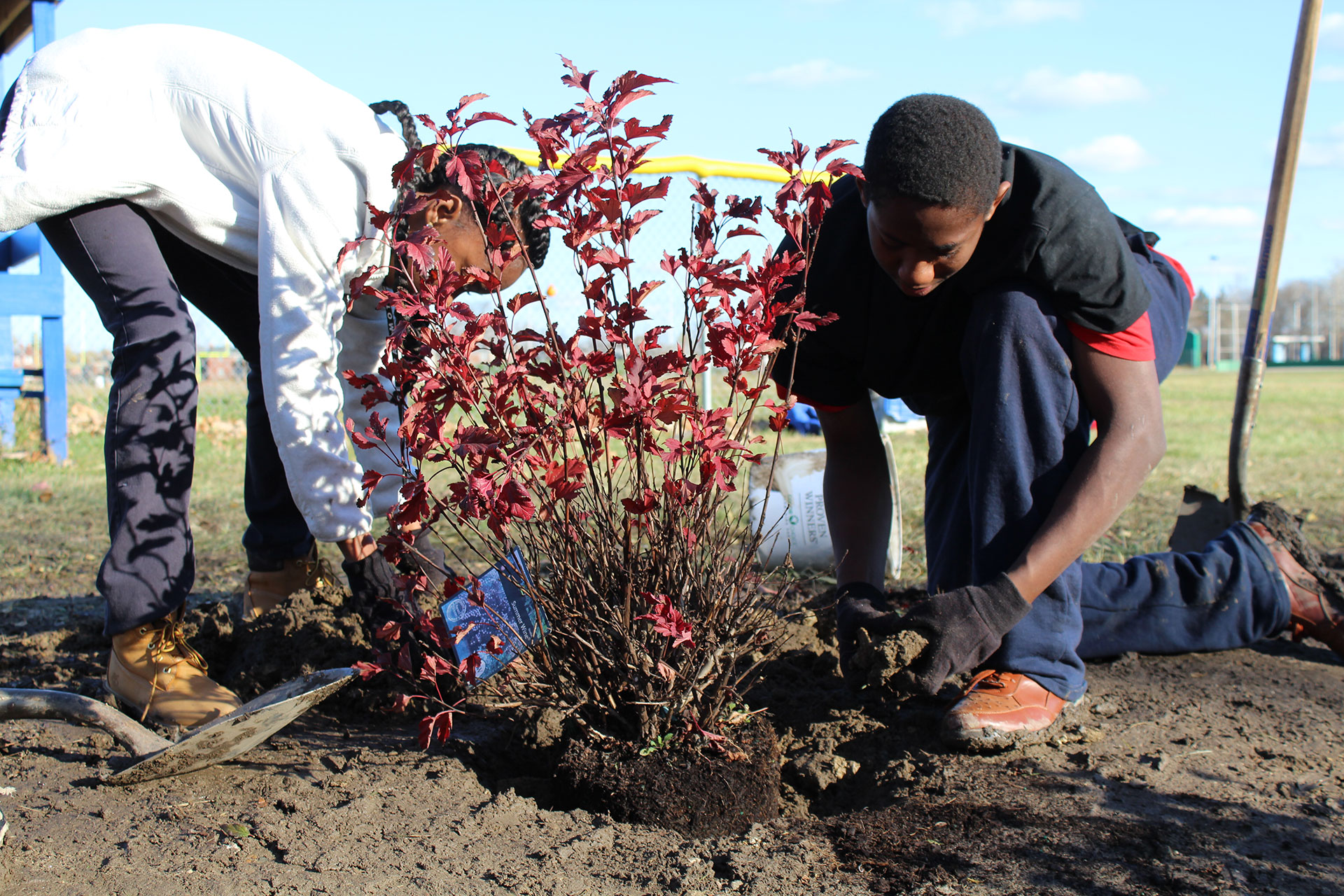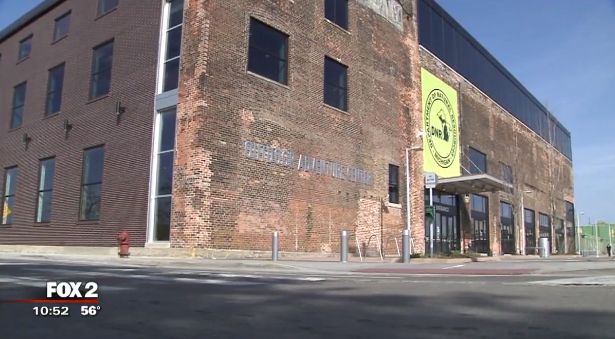DETROIT – The best time to plant a tree is 20 years ago; the second-best time is today.
That proverb has guided the last two decades for 61-year-old Grosse Ile resident Roberta – or Bert –Urbani, who volunteers countless hours planting trees with The Greening of Detroit. The nonprofit organization’s focus is to enhance the quality of life for Detroiters by repurposing the land to create beautiful and productive green spaces.
“When I drive down a street and see a line of trees with the blue plastic tree trunk guards with The Greening’s logo, I know I’m part of an organization that’s making a significant difference in our city and the lives of all of its residents,” Urbani said.
The Detroit native, an engineering and communications specialist with DTE Energy who retired three years ago, is a member of The Greening of Detroit Advisory Council.
A community’s urban forest is made up of every tree found there – in parks, along streets, in golf courses and backyards. An urban forest canopy is defined as the ratio of total land area covered by trees.
Trees provide measurable benefits by reducing air pollution, absorbing storm water, reducing energy use in homes and businesses, and providing food and lumber. But there are plenty of intangible benefits, too, that improve residents’ quality of life.
“It’s impossible to imagine Michigan without the lush beauty provided by its millions of trees. Each of us should do whatever we can to protect this amazing natural resource which is home to many important wildlife species,” said Matt Pedigo, chairman of the Michigan Wildlife Council, which is in the midst of a push to educate the public about the importance of conserving and managing our forests, waters and wildlife.
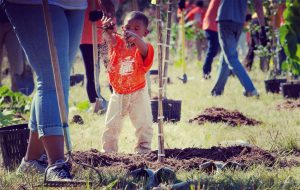
How many trees are enough?
Cities across Michigan – including those in Metro Detroit – are striving to grow their tree canopy, said Trish Hubbell, community and public relations director for The Greening of Detroit.
After decades of disease, storm devastation and budget cuts, Detroit’s tree canopy today is about half of what’s recommended by urban forest experts. Much of the current tree stock is also quickly reaching the end of its lifespan, so planting more trees in Detroit is both an environmental and community health priority.
“It’s a huge issue. We have 23 square miles now of vacant land in Detroit,” Hubbell said. “Our job is to help people understand the importance of having this green space.”
They do this by planting trees and community gardens, assisting neighborhood groups in creating block clubs, envisioning green changes for vacant lots, and coordinating neighborhood cleanups.
Over the past 27 years, The Greening of Detroit – along with an army of volunteers – has planted more than 85,000 trees on city streets. The organization has introduced environmental education and outdoor classrooms in the schools, urban agriculture with three major urban farms, hundreds of community gardens, numerous farm markets and the Build-A-Garden program, which assists individuals in growing their own food. The organization also performs vacant land restoration and adult workforce development, Urbani said.
In addition, it helps train youth and adults for “green” jobs in forestry, landscaping and agriculture. Its Detroit Conservation Corps has provided more than 350 adults with job skills. The Green Corps Program, created in 1998, allows hiring high school students from Detroit each summer to help water trees and maintain city parks and greenways.
Citizen Forester program growing
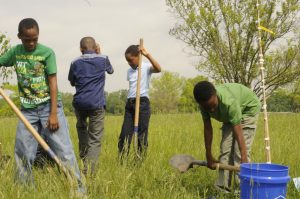
To encourage all residents to help expand the tree canopy, The Greening of Detroit launched its Citizen Forester program. The group provides education and training to volunteers to help them become knowledgeable about tree planting, maintenance and identification – and then lead other residents in tree planting and maintenance projects.
According to The Greening of Detroit’s 2015 Annual Report, 381 citizen foresters have been trained since the program’s inception five years ago – volunteering 2,150 hours last year.
After planting trees with The Greening of Detroit for decades, Urbani decided this year to become a citizen forester.
“It takes your involvement to a new level, and it’s fun to interact with all the people who share this vision of a healthy, green Detroit,” she said.
The United States Forest Service encourages urban forest management by providing expertise and federal funding to partners nationally and within each state. In Michigan, this partnership supports the Michigan Department of Natural Resources Urban & Community Forestry Program, which provides education and financial assistance to government and nonprofit agencies.
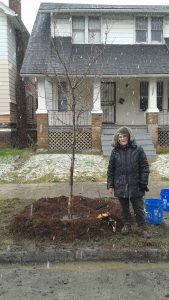
“Our program supports building awareness, and providing technical and educational expertise to help improve people’s understanding of the role trees play in the ‘built environment’ – whether it’s in heavily urbanized areas such as Detroit or in smaller, rural communities throughout the state,” said Kevin Sayers, Urban & Community Forestry Program coordinator.
Financial assistance is available to partners periodically via cost-share grants to help facilitate a variety of projects such as tree planting, training, education and planning across Michigan.
“Trees are vital parts of our community that deserve higher regard than just for their aesthetic beauty. What would our lives be like without healthy and diverse trees in the environment?” Sayers asked.
Urbani, who is close to receiving her urban forester certification, agrees.
“The Greening of Detroit works every day to change the paradigm; to transform Detroit into a cleaner and greener city,” she said.
